Pickathon 2017 [Part 3]: Saturday (Dungen, Black Milk, Ty Segall, Julia Jacklin)
Our third day includes an Aussie songwriter, a Detroit hip hop MC/producer, explosive psych rock, & the live score of a 1926 animated silent film
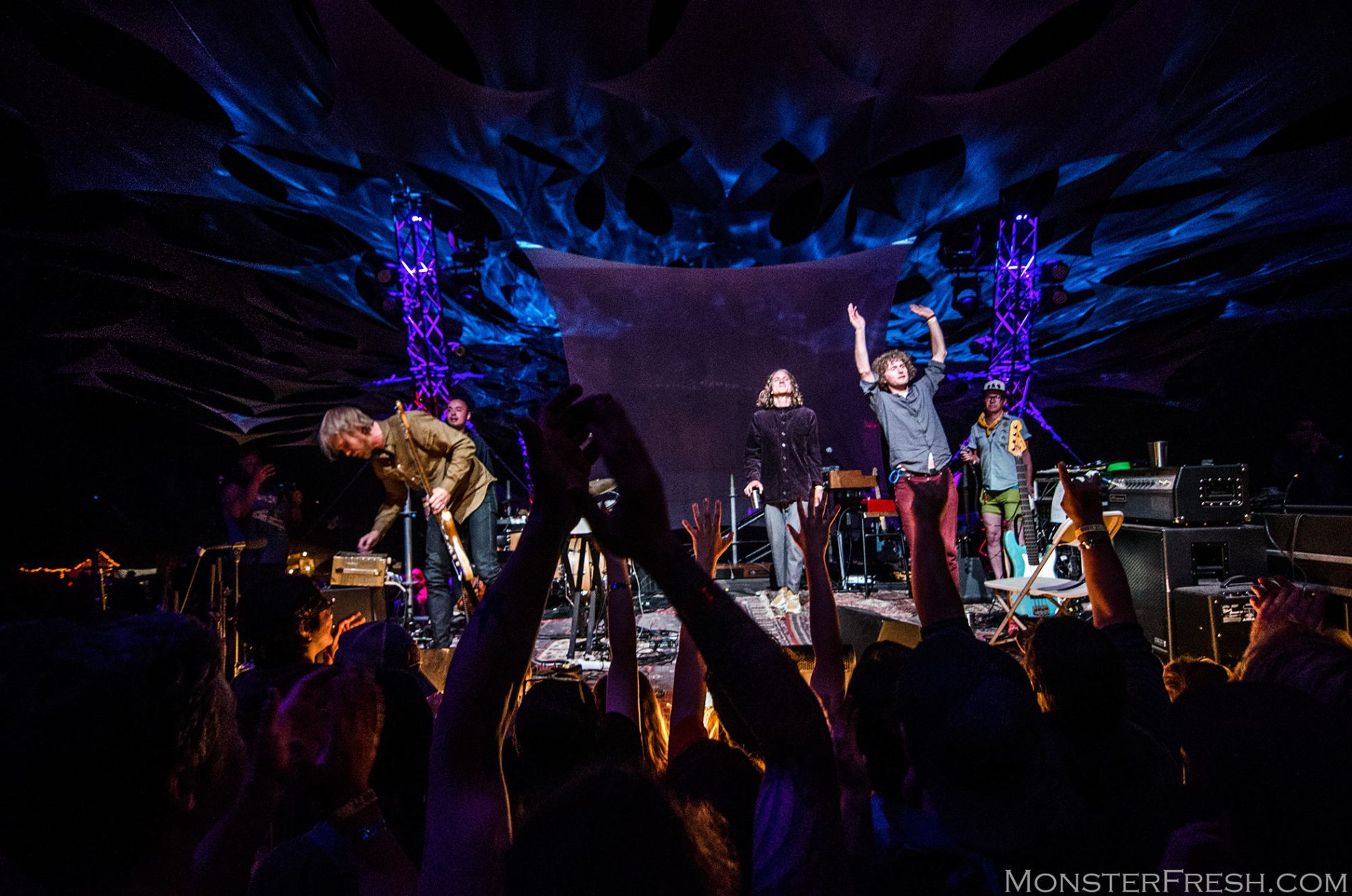
We woke up on Saturday determined to do 2 things. The first was to take a shower and the 2nd was to turn in earlier than the night before. We accomplished one of them. As I sat waiting for Kim with our belongings outside of the shower area, I saw a pair of young kids working their hustle selling wet bandanas for $3 a piece. When an interested party approached, the first kid would pull a new bandana out of a package and his partner would ask if the customer wanted it wet, before spritzing it with a water bottle and handing it over. It was a brilliant move with the blistering heat and all of the dust kicking up into everyone’s face.
You’ll see a lot of this sort of young entrepreneurship on the premises with kids selling homemade bracelets, or lining the trails busking with guitars and violins. In fact, Pickathon is a great place for kids with interactive circus activities and a stage that musical acts like the School Of Rock was playing on. I believe that they even have a little Montessori daycare situation set up for them. I always miss my son each year and feel bad about not bringing him back again, but then I remember how hard we go and that he really has no interest in dealing with this shit 14 hours a day, when he could be at his grandmas house playing with LEGOS.
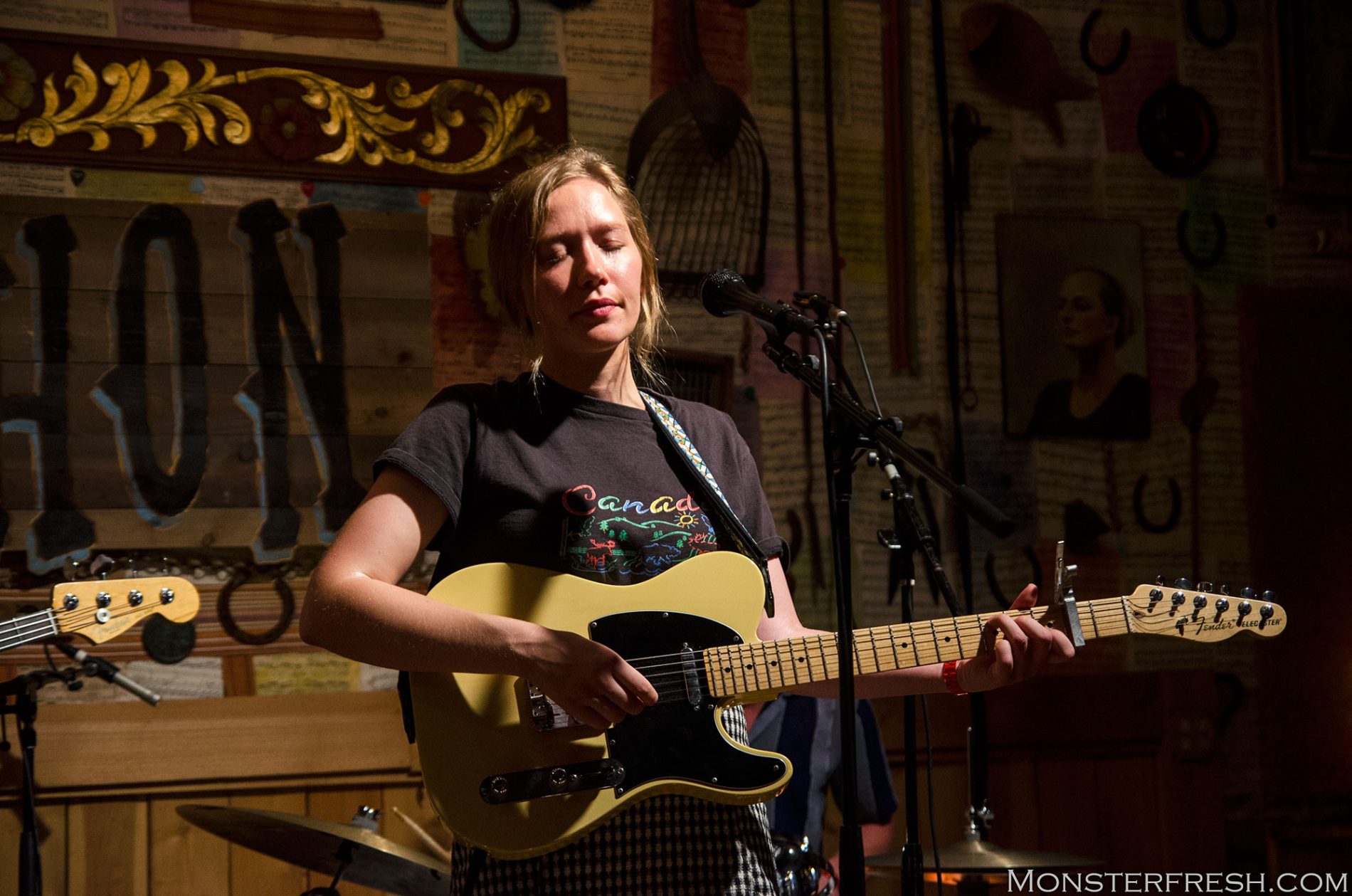
The first spot that we went to was the Lucky Barn. This is the smallest venue on the farm, so it fills up quickly if you don’t get there early enough. If possible, I usually attempt to catch an act during their set on another stage to avoid that issue, but it wasn’t going to work out this time and I knew that I wanted to see Julia Jacklin. Jonathan Richman was performing inside when we arrived, so we stood in a line that began to extend further and further behind us, even after the previous crowd had funneled out. Eventually, we just got bold with our photo passes and simply stepped out of line to enter and seat ourselves during the soundcheck, before everyone else was let in.
Jacklin‘s debut album, “Don’t Let The Kids Win” is an impressive one, front loaded with 50s pop melodies and quickly progressing into a collection of hazy indie folk gems that increasingly unveil added depth to her songwriting. The LP was recorded in New Zealand at The Sitting Room with Ben Edwards who’s worked with Marlon Williams and Aldous Harding, both of whom also played this year’s festival. Noted influences like Fiona Apple and Angel Olsen make themselves present from time to time, as do breathy Sharon Van Etten-like vocals, and a decidedly Stevie Nicks-style delivery on the track “Sweet Step.” Julia‘s appreciation for such artists is something that she has been very upfront about, but while she has mentioned their impact on her development as a vocalist/songwriter and the subtleties of their respective essences might occasionally waft through, it’s important to clarify that the influence of these other women never manages to overpower her sound. The Aussie has found her own incredibly distinct voice — both literally and figuratively — and it’s a refreshing one that pertains not only to her singing, but her ability to craft a tune and as an artist, in general.
Thematically, ‘Don’t Let The Kids Win” addresses the transition into adulthood and a search for ones identity, something that seems to mirror Jacklin‘s own evolution as a musician and songwriter. Her bio tells the story of a girl that stumbled across a documentary about Britney Spears and, prompted by the realization of how much the pop star had already achieved by the age of 12, asked to be placed in singing lessons. With it being the only option available in her area, Julia then began studying classically. She sang in school assemblies and later went on to form a band playing Avril Lavigne and Evanescence covers in high school, “wearing surf clothing and doing a lot of high jumps.” During her performance in the Lucky Barn, she explained that once she discovered folk music, it appealed to her, because of how freeing it felt as someone coming out of such strict, rigid vocal training.
At the time that we began getting press releases for her in late February, she was 25-years old and still living in a garage in Glebe, Australia, while working in a factory producing essential oils. This is the environment in which she created her debut, writing in her free time and allowing herself a couple of years to pursue a musical career to see how/if it panned out. As she tells it, the key is to just keep writing, while knowing that you’re going to produce a lot of garbage at first, until you build up your skills. The reason that these songs sound so effortless is because of everything that came before them to mold her into an artist that understands enough about herself to deliver material exploring what she doesn’t. It may sound as if Jacklin was born with an innate ability to strum out one beautiful track after the next, relaxing in the breeze under a tree, but her work is the result of hammering out the dents like a blacksmith until all that remains is a smooth hypnotic sheen.
Her set in the barn saw her backed by her 3-piece band and her sound was casual, yet pitch perfect. The Lucky Barn performances are interspersed with little Q&A elements between songs and I’m not sure of who the host was, but we could have done without his aimless generic questioning along the lines “when did you start playing music?” followed up with “when did you really start playing then?” followed by, “When did you start playing with a band?” Jacklin is unpretentious and tried to accommodate, even when he asked her to describe what her neighborhood was like in Australia growing up, and she was forced to respond that it was just like a normal neighborhood here in the states. I like the Q&A element fine and, when it shot to the audience, I was able to ask about the production of her “Leadlight” video, which she explained was filmed at her old high school where her mom still works and that they used real students, entering in without an real concept and just “mucking about.” That being said, if the plan is to interrupt the performance with questions, it would benefit things if it felt as though the person asking them did a minimal amount of research, or, at the very least, was asking something that they cared about knowing the answers to themselves.
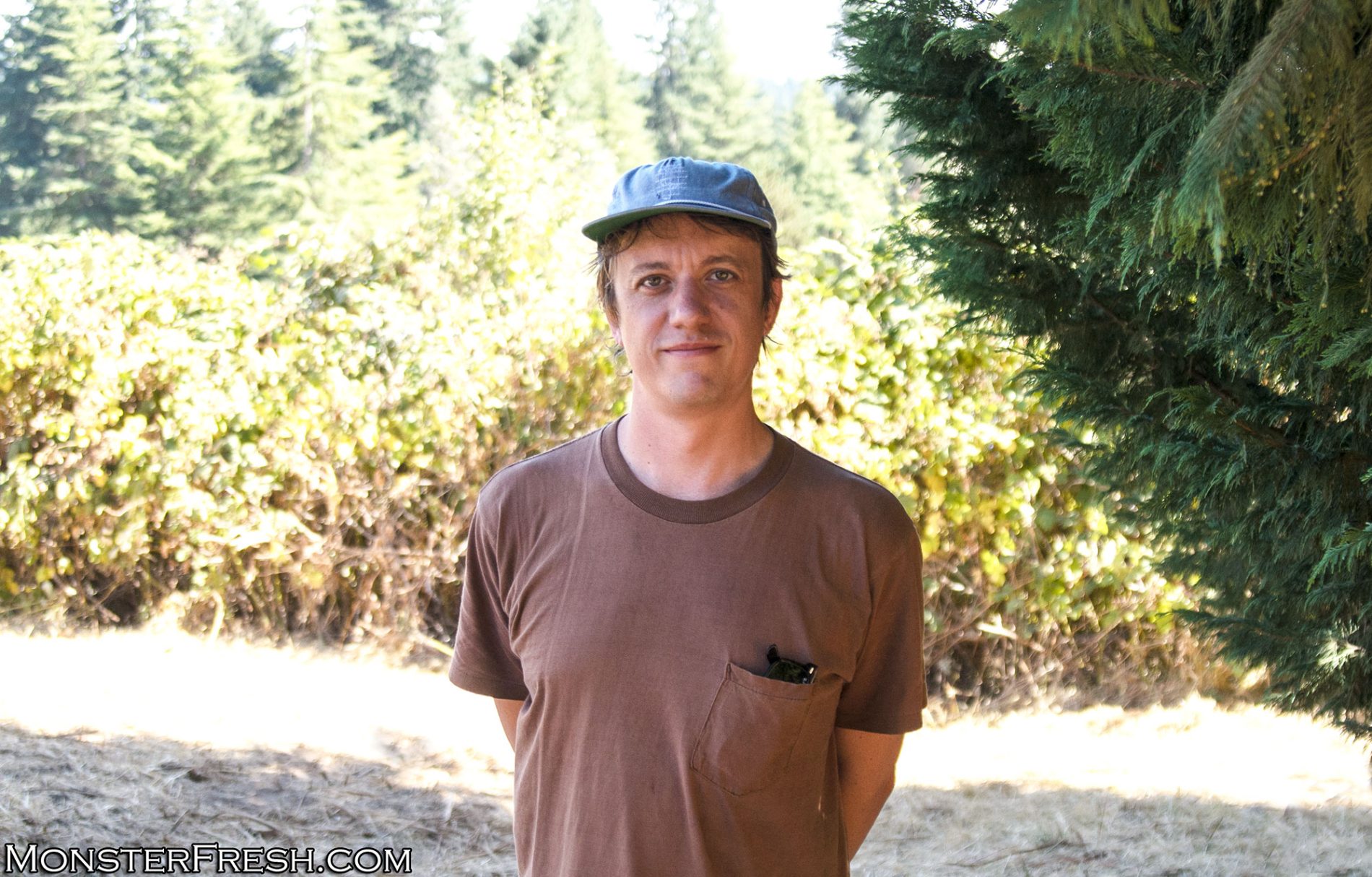
After the set, we saw Steve Gunn outside, so I went up and introduced myself, inquiring about how his show opening for J Mascis in Seattle went the night before. He said that it was good and mentioned how when he performed in the Lucky Barn himself in 2014 that it was the hottest show that he’d ever played in his life. I was happy to inform him that they had finally added air conditioning to the barn, as well as to the Galaxy Barn, which was something that I mention it desperately needing each year, because it gets pretty fucking insane in there.
Steve is a Philly native that is often mentioned as a former member of Kurt Vile and the Violators, but his career began well before that in acts like the acoustic guitar drone trio, GHQ, which incorporated elements of Indian ragas and Appalachain folk, or with his Moongang moniker through which he experimented with tape manipulation. Even before that, he was playing in hardcore bands and listening to rap music. His first solo album was released 10 years ago and was an instrumental effort, with his first LP full of more traditional compositions featuring vocals not arriving until 2013‘s Time Off. It was an album that helped him break through on another level and a direction that he’s continued in since. Over the years, he’d appeared on albums for artists ranging from Magik Markers to Meg Baird, showcasing both his more improvisational noise leanings as well as his guitar virtuosity, influenced by such predecessors as Robbie Basho, and Sandy Bull. It’s that picking prowess on the 6-string that he exhibits more regularly these days and, earlier this year, he even had the honor of producing and performing on an album by another one of his guitar heroes, Michael Chapman.
Somehow it came up that Aldous Harding would be taking the Lucky Barn stage next, to which Gunn mentioned that there was supposed to be another artist on the lineup from New Zealand; a man. “Yeah,” I said. “It’s Marlon Williams. He’s performing in the Galaxy Barn right now. He’s great.” Gunn wanted to catch him, so we walked over toward the barn with him, before parting in another direction.
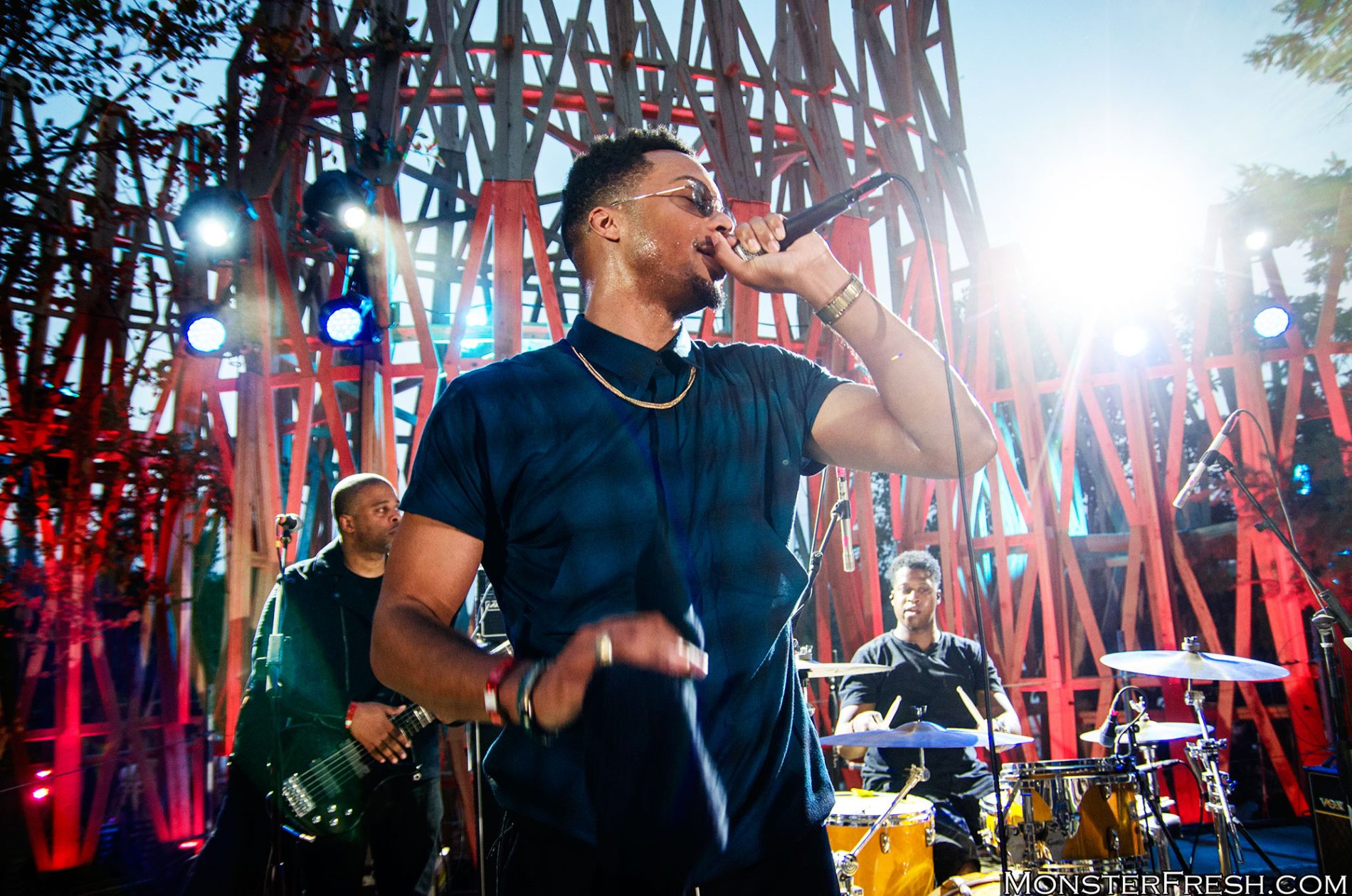
This would be the first day that we’d spend any substantial time over at the Treeline Stage. Located over toward the entrance and camping area, the Treeline really wasn’t much to look at until the last couple of years, when it was given more focus. These days, the stage is designed and built by architecture students from Portland State University and, although it looks different each year, it’s become a consistently impressive structure with the materials being repurposed after the festival comes to an end. We just happened to set up our tent right in the center of where the PSU students were camping, so I was able to get the inside scoop on the details during the weekend. From my understanding, the 30,000 lb structure took 3 weeks to make out of 690 wooden gable trusses, with a week of that spent on the production of the trusses themselves. The funding was provided by the city and supported by “Clackamas County government, City Repair, and other partner organizations, and is behind co-led by PSU School of Architecture’s Center for Public Interest Design.” Once broken down, the materials were then relocated to “a site in Clackamas County, and reconstructed into tiny homes (called “sleeping pods”) for homeless veterans in Clackamas.” Just to hammer this point into the ground, this is the sort of thing that makes Pickathon markedly unlike anything else anywhere else, that effort, ability, and care to arrange something that benefits all parties involved and which everyone thrives. Not only does the Treeline operate as a tremendous project for the students involved and benefit the community, but it looked amazing and functioned beautifully, especially with the lighting elements that were incorporated reflected off of the framework.
We caught most off another Big Thief set at the stage, went to eat, and then got back to the Treeline at the tail end of Meatbodies in time to see who we were really waiting for: Black Milk. Born Curtis Cross, the rapper/producer is heavily influenced by the musical history embedded in his Detroit roots from the Motown soul to the groundbreaking work of J Dilla. Like Dilla, Cross initially made his mark on the production end of things, even replacing the late producer, to some dregree, once he departed the group Slum Village. Adopting Jay Dee‘s dedication to pushing the envelope forward more than his direct sound, Milk went onto to carve his own lane, not only in the Detroit scene, but in hip hop at large. He’s gone on to produce for artists like Pharoah Monch, Canibus, Busta Rhymes,Robert Glasper, and Slaughterhouse, apart from his work with fellow motor city pioneers lik eLZhi, Royce Da 5’9″, Phat Kat, Danny Brown, and Guilty Simpson, the latter of which he released an album with as part of the group Random Axe, that also consisted of the late Sean Price. Furhering his Detroit connections, Black Milk even cut a 7-inch single at Jack White‘s Third Man studios in which the label owner produced and performed on a pair of tracks (guitar on the A side and drums on the reverse). As for solo albums, Cross has released 6 of them, demonstrating that, aside from being one of the most sought after figures behind the boards, he is also one of the most impressive lyricists doing it right now.
Nat Turner is an instrumental bass, keys, and drums trio from DC that Curtis released an album with in 2016, that was somewhat of an experiment in collaboration recorded in only a week. In the past, Milk has spoken of his evolution working with Nat Turner keyboardist, Aaron “Ab” Abernathy, and his ability to communicate his ideas to him effortlessly. During their set that relationship is one of the things that stood out with the rapper beginning the performance by announcing that they were going to scrap what they practiced in rehearsal and attack things on the fly. Black Milk isn’t the first emcee to be backed by a live band, but much of the time, such combos can feel as if they are two separate entities, whereas Cross noticeably throws signals to conduct his backing band, at times, as they operate as a singular unit. They were a great addition to the lineup, effective in finally getting the seated festival crowd off their asses and moving to a solid performance scattered with deep lyrical content laid over funky soul grooves and jazzy Herbie Hancock-like piano lines.

I’ve heard the name Drive By Truckers for years, but, as of late, they seem to have gained more widespread recognition simply for being Jason Isbell‘s former group. As for their music, I’ve never been too familiar, but they had one of the larger crowds of the weekend as they headlined the main stage. We only passed through briefly at the end, but the band seemed to be giving it their all and their connection to the audience was palpable. I snapped a couple of photos while Kim headed over to the Starlight and found a seat for Dungen.
Back in 2012, the Cinematheque at the Swedish Film institute commissioned Dungen to participate in their “Sounds Of Silence” project, which consisted of a number of accomplished musicians from the area scoring classic arthouse films. Out of the provided list, the band selected the 1926 German movie, The Adventures of Prince Achmed, which is credited as the oldest surviving animated feature film, released 11 years prior to Disney’s Snow White & The Seven Dwarfs. Built around elements taken from the collection of middle eastern folk tales, One Thousand and One Nights (aka Arabian Nights), the landmark production was crafted using a shadow puppet-like silhouette animation technique invented by director, Lotte Reiniger, who handcut each figure and backdrop, filming it frame by frame over a 3-year period.
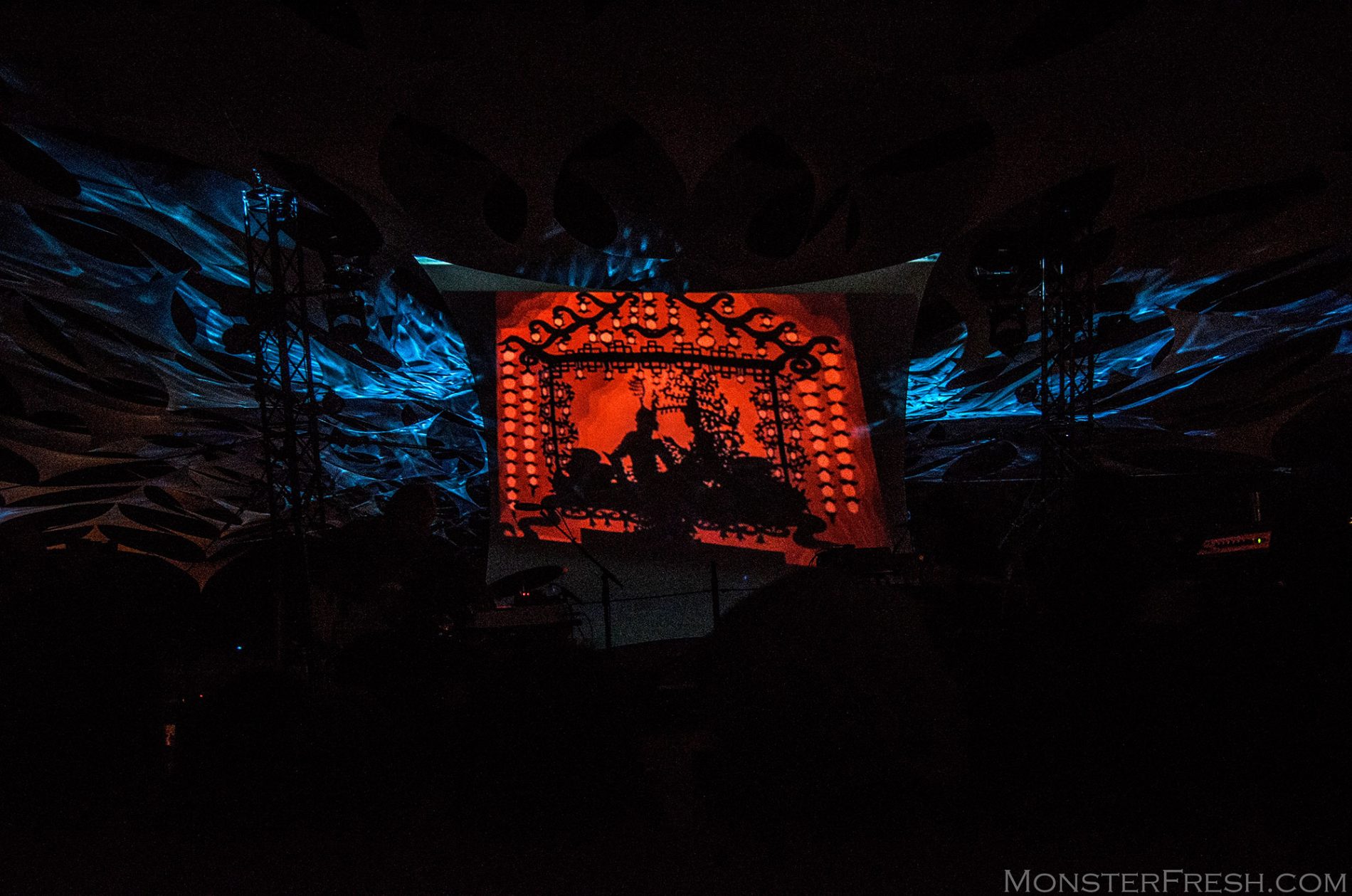
I first became aware of Dungen‘s involvement with the project when they released a compact version of their score as their first all-instrumental LP, Häxan, — named for the witch character in the film — as an official title for Record Store Day 2017. Later, when I discovered that they were doing select performances scoring the film live, I assumed that it was something that I’d never have the fortune to experience myself. While Dungen was one of the my main draws for Pickathon this year, both of their sets overlapped with the two by Dinosaur Jr, so I had to make a decision which one to catch on which day and on which stage. The idea of seeing each respective band on the Woods stage was definitely appealing — Dinosaur would be there tonight, with Dungen taking the slot on Sunday — but when I saw it specified that the Stockholm quartet would be scoring Prince Achmed on the Starlight from a giant wooden schedule board, things got really fucking simple. There was nothing that I was more excited for and nothing that paid off more for me at the festival. This was, unquestionably, my favorite set of the weekend.
I have a friend named Bridget who the band has stayed with while performing in the Atlanta area, as well as in her airbnb rental during the canceled Austin Psych Fest. Back in March, she traveled up to Pittsburgh to see them do one such performance of the score at the Warhol Museum and I’ve been watching her minute-long instagram clip of the show (above) in awe, ever since. In fact, any time that I ran into anyone who mentioned that they were unsure what they were planning to see at the festival, I made sure to pull up that clip and aid in their decision making. When I met up with Kim, Marlon Williams and his band happened to be seated behind her, as anxiously awaiting what was to come as anyone, and when I showed his guitarist, Dave Khan, the IG clip of what they were about to do, his eyes grew large and his mouth dropped open. I wasn’t sure how many people would turn up to see a Swedish band score a silent film, especially with the conflicting Dinosaur set, but the space began to fill up quickly. I’d never seen that many people at the Starlight stage in the 4 years that I’ve been attending Pickathon. It looked like an endless sea of people extending behind us, with just as many seated figures flanking each side of the stage in areas that don’t typically contain anyone.
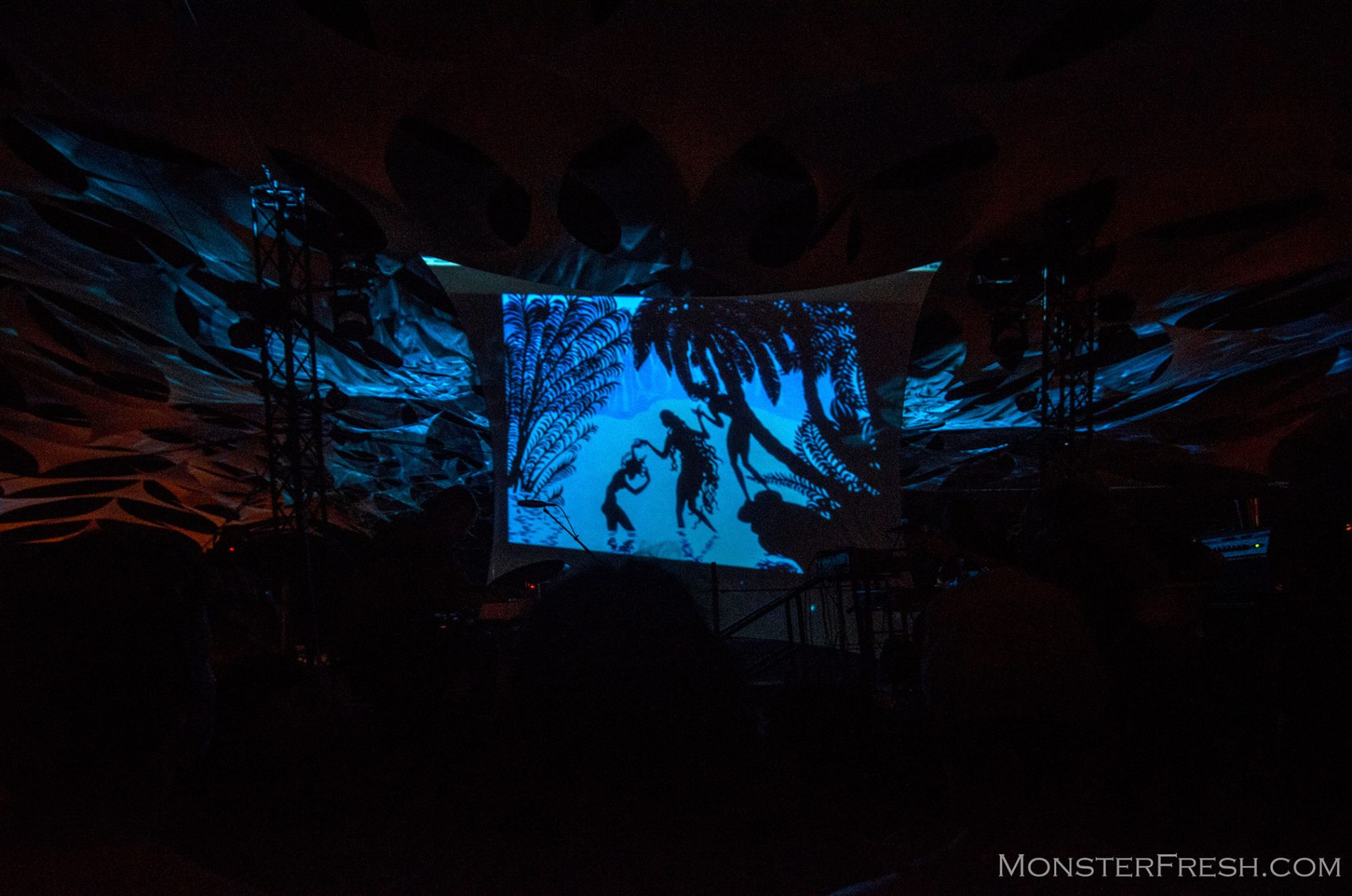
Being 5 full acts, this was the one set of the weekend that the crowd probably should have sat for, but in the main area directly in front of the stage where I was positioned, they didn’t, and it wore on the legs. That isn’t to say that the whole performance wasn’t beyond worth it, mesmerizing and nearly impossible to describe — hopefully the images and video clip above provide at least some very basic semblance of an idea of what we experienced. Not that the Häxan, album isn’t an impressive standalone effort on its own, but seeing the band sync up to the film provided a whole other level of understanding and appreciation for the music, with every drum fill, propulsive bass line, soaring guitar, or flourish from the flute interacting directly with what was being projected on the screen. As described by their label Mexican Summer on their website, “Here, the psychedelic rock is more bombastic, the softer passages more exquisite, the tension in their musical interplay more dramatic, their intentions remarkably robust.” Already a longtime vocal supporter of the group and their abilities, I was still surprised by the overwhelming brilliance of what they put together. Dungen has always been a project of Gustav Ejstes, but the nature of this venture suggests something more collective than their years of remarkable interplay as a live unit even could have. They were so locked into both the film and each other that, for the majority of the performance, it was easy to forget that the band existed up their shadowed in darkness as the epic tale unfolded. Even more impressive is the fact that, the next day, guitarist Reine Fiske explained to us that they could barely see the screen, which appeared blurry to them, from where they were positioned.
Later in the evening, bassist, Mattias Gustavsson would reveal to me that they’d only performed the live score about 15 times in total and that the Pickathon set was planned as their second to last time doing it — a show in the Redwoods would follow later that week. Bringing something like this in adds a whole other dimension to Pickathon, placing it further in its own distinct lane and adding to the magic that sets it apart from every other festival. There truly are so many levels to this thing and endless opportunities to curate your own unique experience on the Pendarvis Farm choose-your-own-adventure style.
Every year, there’s at least one band that most people are likely unfamiliar with when they arrive, yet are completely won over by at Pickathon. This is the name that you hear consistently muttered as you pass by strangers throughout the weekend. Dungen, without a doubt, has dibs on that title this year.
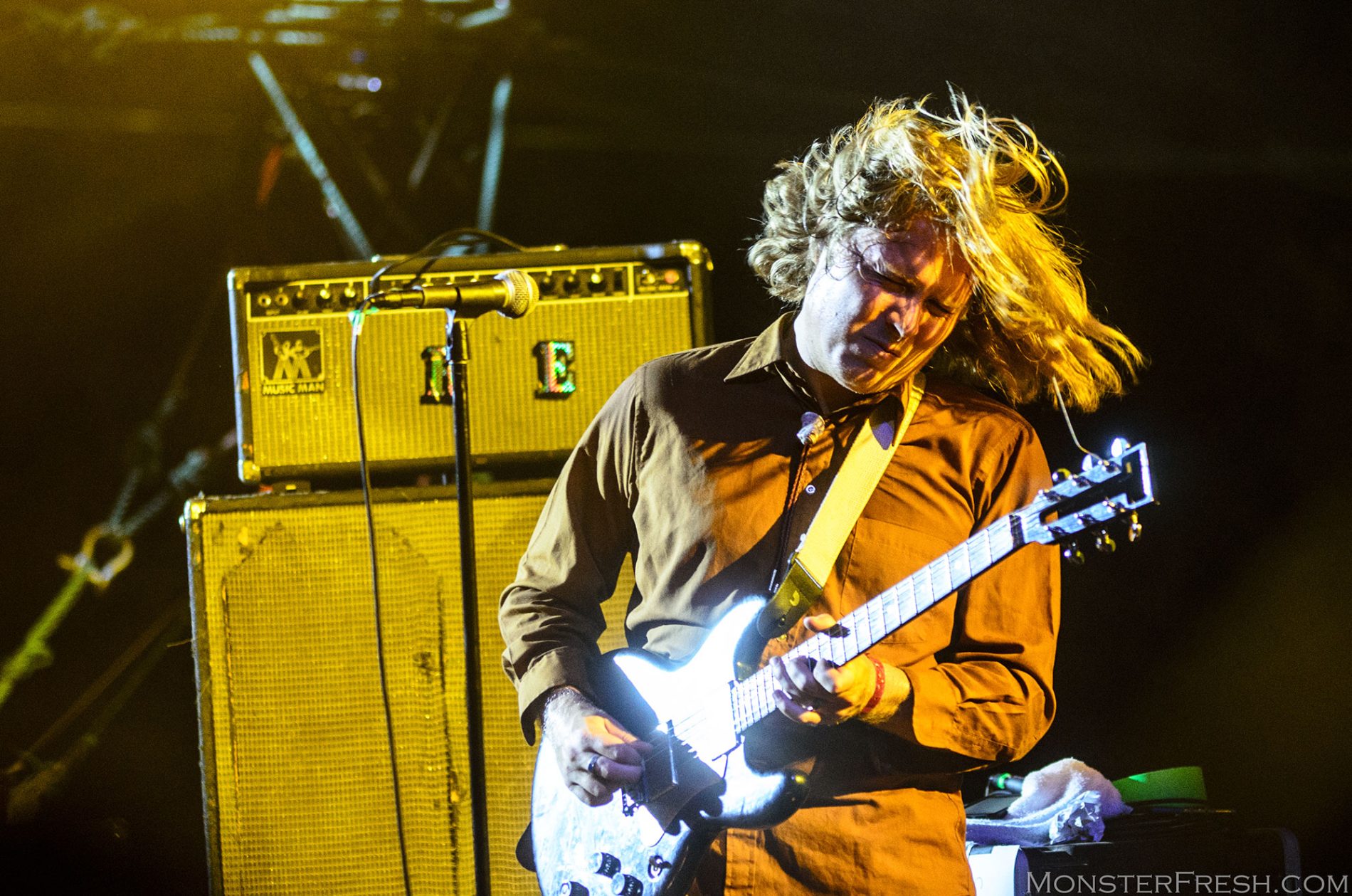
Earlier in the day, I had the notion to try and break over to Dinosaur Jr the moment that Dungen was finished, but the Woods stage was a bit of a trek and I was in no shape to be exerting that level of energy, so I convinced myself that I wanted to see Ty Segall again. Nothing against Ty, but I’ve seen him plenty of times over the years, and a good portion of those were at Pickathon, so he wasn’t at the top of my list of priorities. It was last year that the insanely prolific Los Angeles-based garage-psych shredder expressed to me his feelings that, while he’s played just about every festival in the US, they’re mostly “shit,” except for this one, and he’s proven his love by returning to perform on the Pendarvis property with a new lineup/project just about every year. I’ve seen him play on the Woods stage with a stripped down acoustic outfit and on the main stage a couple of times with more rocking combos. Last year, he brought his super group The Muggers to the farm for a rousing late night set in the Galaxy Barn and followed it up by getting a massive crowd going ape shit on the Mt Hood stage the following day. The Muggers lineup was an impressive one which included Emmett Kelly on guitar, who also performed additional sets as The Cairo Gang with Ty on drums; as well as Evan Burrows (drums) and Cory Hanson (guitar) from the band Wand, who have appeared at Pickathon both on their own and as support for Ty in 2015. The group was rounded out by Kyle Thomas aka King Tuff and Mikal Cronin. Thomas finds a way to show up every year himself — this year as DJ King Tuffy — and when I ran into Mikal during his first year, back in 2014, he told me point blank that even if he wasn’t booked for the lineup the next year that he would show up anyway. In fact, that was the only year since 2013 that Ty, himself, wasn’t on the bill and he was still there hanging out with both of them.
This year’s lineup as Ty Segall and The Freedom Band involved Cronin (bass) and Kelly (guitar) returning, but with Segall back on guitar again, something that he’d mostly abandoned to focus on vocals in their previous outfit. No King Tuff this time around and the Wand boys were absent; instead, Charles Moothart (CFM, Fuzz, Ty Segall Band, Moonharts, Epsilons, etc) took up drum duties, with the keys being handled by Ben Boye, who has not only collaborated with Cario Gang in the past, but worked repeatedly with such artists as Bonnie Prince Billy, Joshua Abrams, Ryley Walker, and Mark Kozelek/Sun Kil Moon.
I’m not sure what I was so concerned about, but The Freedom Band hit the stage like a pipe bomb went off, assaulting the crowd like a cyclone of pure sonic mayhem. Every member was flying around in constant motion and the audience immediately followed suit. Kim remembered Ty‘s Galaxy Barn set being one of her favorites from last year, but neither of us were really anticipating much, because… well… this is, more or less, an act that we’ve seen before. The fact is that they always deliver and that’s why they keep being welcomed back. I wasn’t sure how anyone was possibly going to follow the spectacle put on by Dungen, but if you’re going to do it, the best way is to just blast everyone in the face and wipe their minds clean. It worked. This was a straight ahead balls out rock set packed with blistering tunes and the random cover of the Grateful Dead‘s “Fire On The Mountain” mixed in to keep things light and entertaining.
Earlier in the day, I ran into Pickathon founder, Zale Schoenborn who gave me the inside scoop about a “secret” late night Dungen set, so we were really just hoping to kill some time with Ty before heading out there. What wound up happening is that we stayed for the entire set, which worked out, since it culminated in the band busting into one of my all time favorite DEVO tracks, “Gut Feeling.” They put their own raw, unrestrained edge on the song, but they made sure to keep it legit and add the “Slap Your Mammy” portion to the end, because, if you’re going to fuck around and cover “Gut Feeling” you better do that shit right.
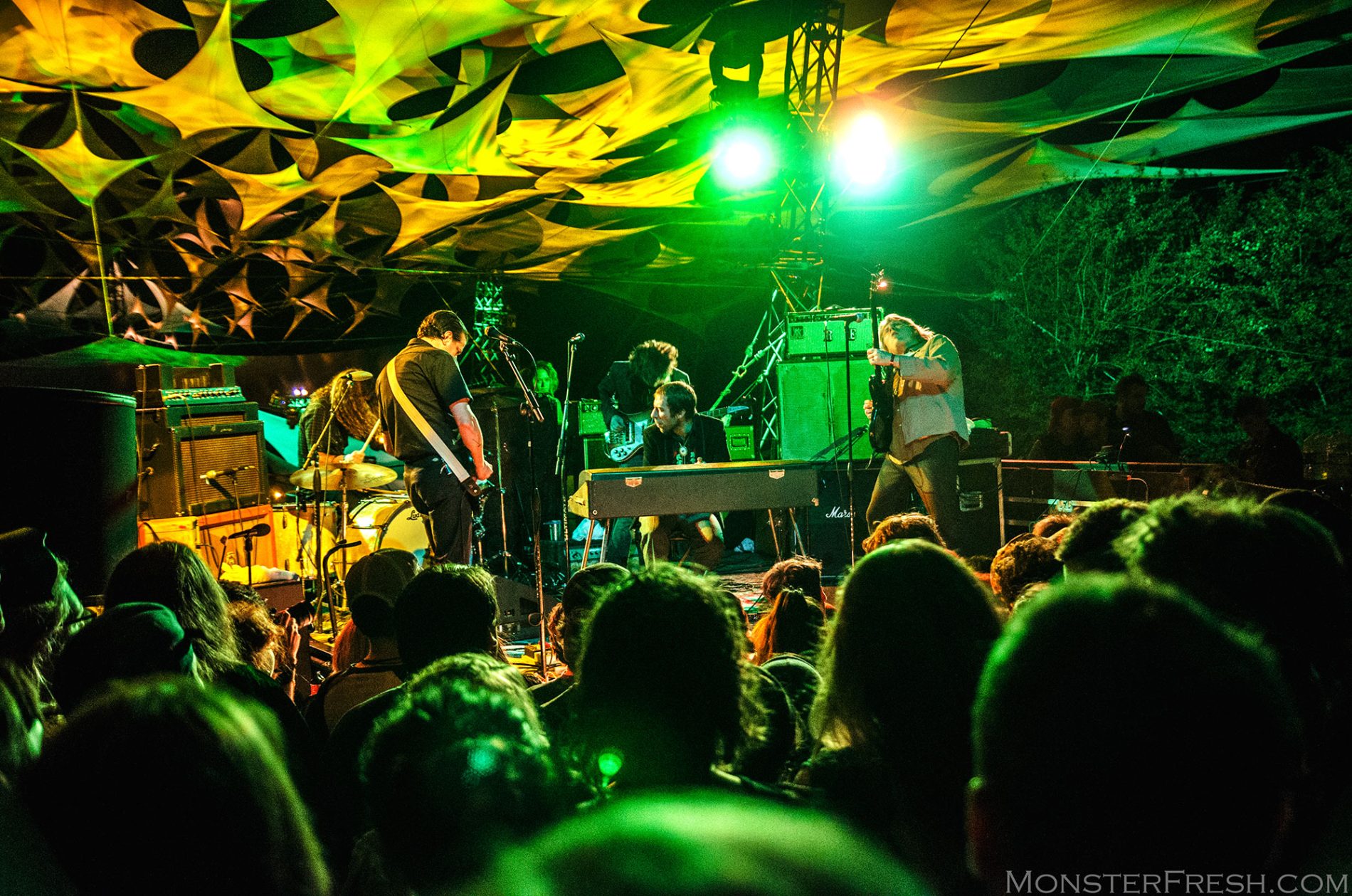
Dungen was playing at a spot called The Pumphouse located in the woods and requiring a backstage wristband to enter. If you scan youtube, you should be able to find several live recording sessions filmed there from over the years, and when we arrived, there was a camera pointed at the band and rolling. This is a really surreal location set up like a makeshift living room with little clocks on trees and weird shit like that, which gives a subtle Alice In Wonderland vibe. Other media and artists like Adrianne and Buck from Big Thief were seated on couches or standing around watching the performance. We arrived at the tail end, but from my understanding, Dungen‘s time was brief. They ended by stating that they’d fucked up the song that they were playing anyway, followed by Gustav walking up to the mic and jokingly singing a little line from “Eels” from The Mighty Boosh episode of the same name. I was pretty worn at this point, but, since we have a mutual friend who I’d been talking to and knew that I’d be there, I figured that I was obligated to get my shit together and go say something to them as they were packing up. I introduced myself to Mattias. We talked a little about the festival and that’s when he explained to me that they were about to retire from doing the Prince Achmed shows. He suggested that we take a picture together and send it off to Bridget. When she forwarded it back to me a few days later, we looked like strung out tweakers and it was pretty evident that neither of us were in prime shape when it was taken.
We intended to head back to our site, but when we reached the bottom of the trail, we were drawn to the sound of an acoustic quartet of Tuvan throat singers called Huun Huur Tu on the Starlight Stage. We listened for a moment and then wandered over to grab a drink from the beer garden outside of the Galaxy barn where M.A.K.U. Soundsystem happened to be performing another high energy set. The amount of variety available, both from a sonic standpoint as well as for variations in mood, was at the forefront of my mind, as I took in how much I always love coming to this place. I ran into my friends Mike and Todd who were both volunteering volunteering and kicked them a couple of my drink tickets, before stumbling back to our tent. It was approaching 3am when we got back. Again.